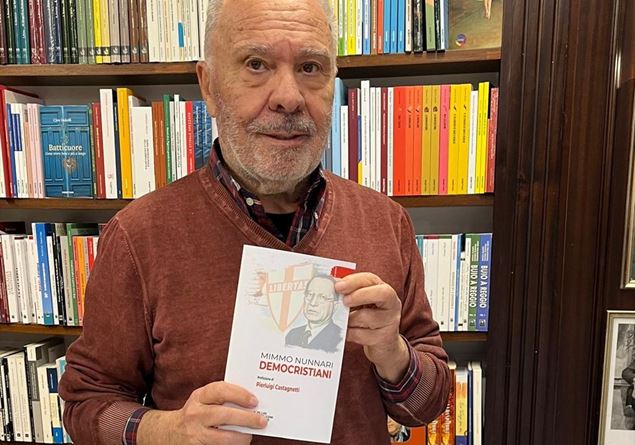The latest book by Mimmo Nunnari starts from a nostalgia. That for a political force capable “of making synthesis, cultivating and transmitting some form of national identity”to be available “in comparison with everyone, even opponents”. Able to build the backbone of our country and to give roots to those values of solidarity and common good that still today, despite the mediocrity of the ruling classes that followed one another, hold the reasons for our being together. “Christian Democrat “(pp. 288, Euro 18, Luigi Pellegrini Editore), with the preface by Pierluigi Castagnetti, tells a story just over fifty years long. From the first clandestine meetings of 1942 to his dissolution in July 1993, making use of testimonies, published and unpublished documents, analysis of the thought and action of its major leaders, Nunnari brings to light more than the story of a party, the soul of a movement that represented, from the post -war period onwards, the feeling of an entire people, also of that part that did not vote for him in the urn.
In all 17 chapters, written with the rhythm of the novel, They retrace the fundamental stages of the DC, from those meetings in the home of the Milanese industrialist Enrico Falck, still under fascism, to the Roman meetings of Giuseppe Spataro to the Camaldoli Code, to the contribution of the thought of the Catholic movement, until the years of terrorism, of Tangentopoli, the end of the first Republic and the vain attempt by Mino Martinazzoli to save the history of the Popular Party Sturzo.
Not only a chronology, but also unpublished episodes, such as Riccardo Misasi’s proposal to replace Aldo Moro as hostage of the Red Brigades. And then the portraits of the protagonists, from that of Moro himself to Alcide De Gasperi, Giulio Andreotti, Sergio Mattarella, “The last Christian Democrat”which becomes a symbol of an ideal continuity that goes beyond the end of the party to the present day. A “Christian Democrat” DNA that remains in the Italian institutions and founded the SALDEZA. As he writes Pierluigi Castagnetti in the preface, the DC was a “sentiment”, a network of values rooted in democratic Catholicism that cannot have been lost forever. The refusal of extremism, attention to the common good, Mediation as a political toolthe ability not only to reconstruct the post -war period, but to integrate Italy into the western context are opposed to the populist drift and the current emptiness of planning. The need for a policy as a service and not as a media show returns. A book for scholars, but also for simple readers animated by curiosity. The historical rigor, in fact, combined with a narrative-journalistic writing, makes it a text accessible to everyone. Able to make not only memory, but of Stimulate debate and thought to fill the memory voids on the past and bring out the contradictions of the present. To return to doing politics “with the values in the pocket” for the benefit of all.


